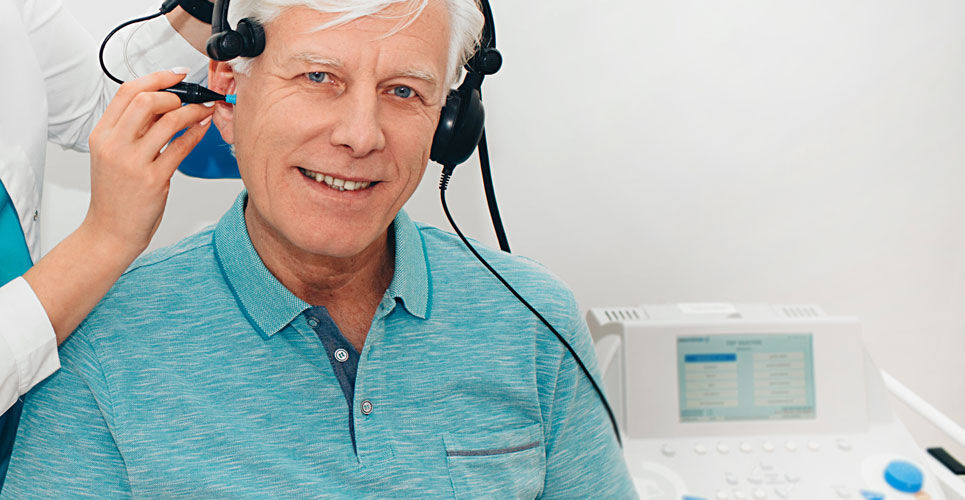Auditory symptoms self-reported by individuals infected by COVID-19 may not be linked with the virus and possibly even a nocebo effect
Whether auditory symptoms among those with COVID-19 are directly attributable to the virus is unclear and could even represent a nocebo effect. This was the finding of an interesting analysis by researchers from the Manchester Centre for Audiology and Deafness, University of Manchester, United Kingdom.
It has long been appreciated that a viral infection can lead to hearing loss, with, for example, cytomegalovirus, causing up to 40% of all congenitally acquired hearing loss. A virally induced hearing loss can be either mild or profound and affect either one or both ears. Moreover, early data has suggested that COVID-19 can induce auditory symptoms with one study in 10 patients infected with the virus, experiencing audio-vestibular symptoms including hearing loss, vestibular dysfunction and tinnitus. Furthermore, a systematic review of COVID-19 and audio-vestibular disorders estimated a pooled prevalence of 7.6% for hearing loss and 14.8% for tinnitus. Nevertheless, a limitation of the analysis recognised by the authors, was that these figures could be an over-estimation because it was not always clear that studies report a change in symptoms. In other words, caution is required for the interpretation the links between auditory symptoms and COVID-19 for several reasons. For instance, the quality of the evidence is generally low, most studies were retrospective in nature, relied upon self-reporting and finally lacked a control or non-COVID-19 group.
In trying to further explore the relationship between auditory symptoms and COVID-19, the UK team set out to compare auditory and non-auditory symptoms reported by individuals before and over the first 18 months of the COVID-19 pandemic. They looked at three types of symptom: type 1 for which there was a known association with COVID-19 (e.g., loss of smell, memory/concentration and fatigue), type 2 where the relationship was less clear (e.g. auditory symptoms) and type 3 in which there was no known association with COVID-19 (toothache). The authors believed that if hearing problems were related to COVID-19, the pattern of onset would be similar for the set of symptoms in type 1. Participants were members of the public invited to complete a YouGov survey in March 2019 and who repeated the survey between August and September 2021.
Auditory symptoms and association with COVID-19

A total of 6,881 individuals with a mean age of 52.1 years (53.2% female) completed both surveys. This included 411 who had a positive test for COVID-19, 760 with a probable, self-reported infection and 5,710 who self-reported that they had not been infected.
In the second survey, 10.2% of the entire cohort reported hearing difficulties and tinnitus. In relation to COVID-19 status, 12.5% of those with a positive test reported hearing difficulties, 15.1% with a probable infection and 6.8% of those who had not been infected. A similar proportion (roughly 16%) of positive and probable COVID-19 individuals reported tinnitus compared with 8.6% of those not infected.
When assessing whether the onset of auditory symptoms coincided with COVID-19 infection, around a third of respondents in the two COVID-19 groups said that their symptoms began when or within a few months of their infection. However, when asked to comment on the extent to which individuals attributed both auditory and non-auditory symptoms to COVID-19, 57% who experienced both hearing difficulties and toothache, reported that these symptoms were ‘somewhat’ or ‘very much’ affected by COVID-19. In addition, 73% of those with both tinnitus and toothache attributed these symptoms to COVID-19 and 60% of those with confirmed or probable COVID-19 said their toothache was affected by the virus, despite a lack of evidence to support this association.
The authors concluded that despite some evidence that auditory symptoms could be due to COVID-19, there was also evidence of inconsistent reporting, as well as possible nocebo effects, i.e., patients are more likely to experience an adverse effect if they expect or are worried about the adverse effect. In order words, patients seemed more likely to attribute both their auditory and non-auditory effects to COVID-19. The authors added that audiometric measures in conjunction with self-report are required to determine the precise nature of the relationship of auditory effects with COVID-19.
Citation
Saunders GH et al. Shedding Light on SARS-CoV-2, COVID-19, COVID-19 Vaccination, and Auditory Symptoms: Causality or Spurious Conjunction? Front Public Health 2022

